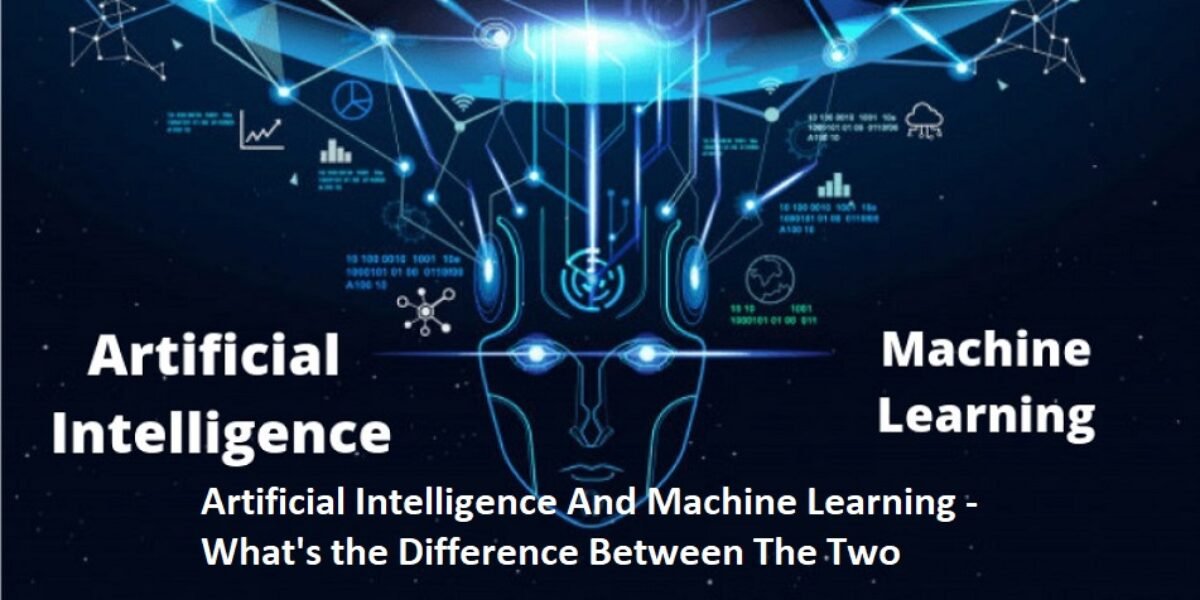Artificial Intelligence And Machine Learning – What’s the Difference Between The Two
Artificial Intelligence And Machine Learning – What’s the Difference Between The Two
Post Outline
- 1 Artificial Intelligence And Machine Learning – What’s the Difference Between The Two
Although often discussed together, AI and machine learning are two different things and can have two separate applications. Here’s everything you need to know about the difference between artificial intelligence and machine learning and how it relates to your business.
What Is Artificial Intelligence?
Artificial intelligence is programming computers to complete tasks that usually require human input. A computer system typically mimics human cognitive abilities of learning or problem-solving.
What Is Machine Learning?
In order to learn about specific topics and make predictions, computers sort through data sets (such as numbers, photos, text, etc.). It becomes better and more accurate at identifying differences in data the more data it has. In order for machine learning to start learning, a human must typically simply provide an initial data set. Although they shouldn’t be used interchangeably, AI and machine learning are often used together.
Difference Between Artificial Intelligence And Machine Learning
Artificial intelligence is used in machine learning. All artificial intelligence is machine learning, but not all machine learning is artificial intelligence.
Capabilities Of AI And Machine Learning
There are great opportunities for businesses to leverage AI and machine learning; we’ll discuss a few below.
1. Recommendations And Algorithms
Businesses can create algorithms that correctly recommend products that a user will like using machine learning and artificial intelligence. The algorithm of a streaming service that recommends TV shows and films based on viewing patterns and user reviews is a great example. As the machine analyzes more viewing data, these recommendations get better over time.
2. Image Search
A machine can learn important traits and distinguishing features when it is fed data in the form of images. A great example of this kind of machine learning is Google Lens, which enables users to use devices for visual search. Imagine a person seeing a pair of shoes they like on someone else while they are out in public.
Since they are unable to recognize a brand name, they use Google Lens to take a picture of the shoe. It looks over the image for distinguishing details and traits before searching the internet for a match that will lead the searcher to the precise pair of shoes.
3. Sentiment Analysis
The sentiment behind statements can be understood by AI and machine learning, which can then classify them as positive, neutral, or negative.
Using keywords, social listening tools analyze online brand conversations to ascertain whether people are being positive or negative in their statements. These tools are a common marketing application of sentiment analysis.
4. Speech Recognition
Additionally, machines can learn to recognize sounds and sound patterns, analyze them, and use the information to provide solutions.
Shazam, for instance, can analyze a sound and tell users precisely which song is playing, and Siri can present answers to a user’s spoken query.
Benefits Of AI And Machine Learning
Using AI and machine learning can bring a variety of benefits to a brand looking to leverage them:
- Data Analysis: When systems become more efficient in processing data, teams have a useful and accurate source of information that can help drive business decisions.
- Efficiency and Time Management: Machine learning and AI can take over everyday routine tasks and allow teams to focus on pressing issues that a computer can’t handle.
- Fast Solutions: Intelligent machines can come to solutions faster than humans can. For example, a human could generate a list of reputable sources on a topic, but Google Search would do it faster.
Conclusion
Although the term “artificial intelligence” is broad, machine learning is included. It’s not an either/or situation if your company is considering leveraging machine learning because AI is necessary for machine learning to exist.
Whatever the differences, one thing is clear: businesses benefit from artificial intelligence, and incorporating tools into your strategy can help you stand out from the competition.
